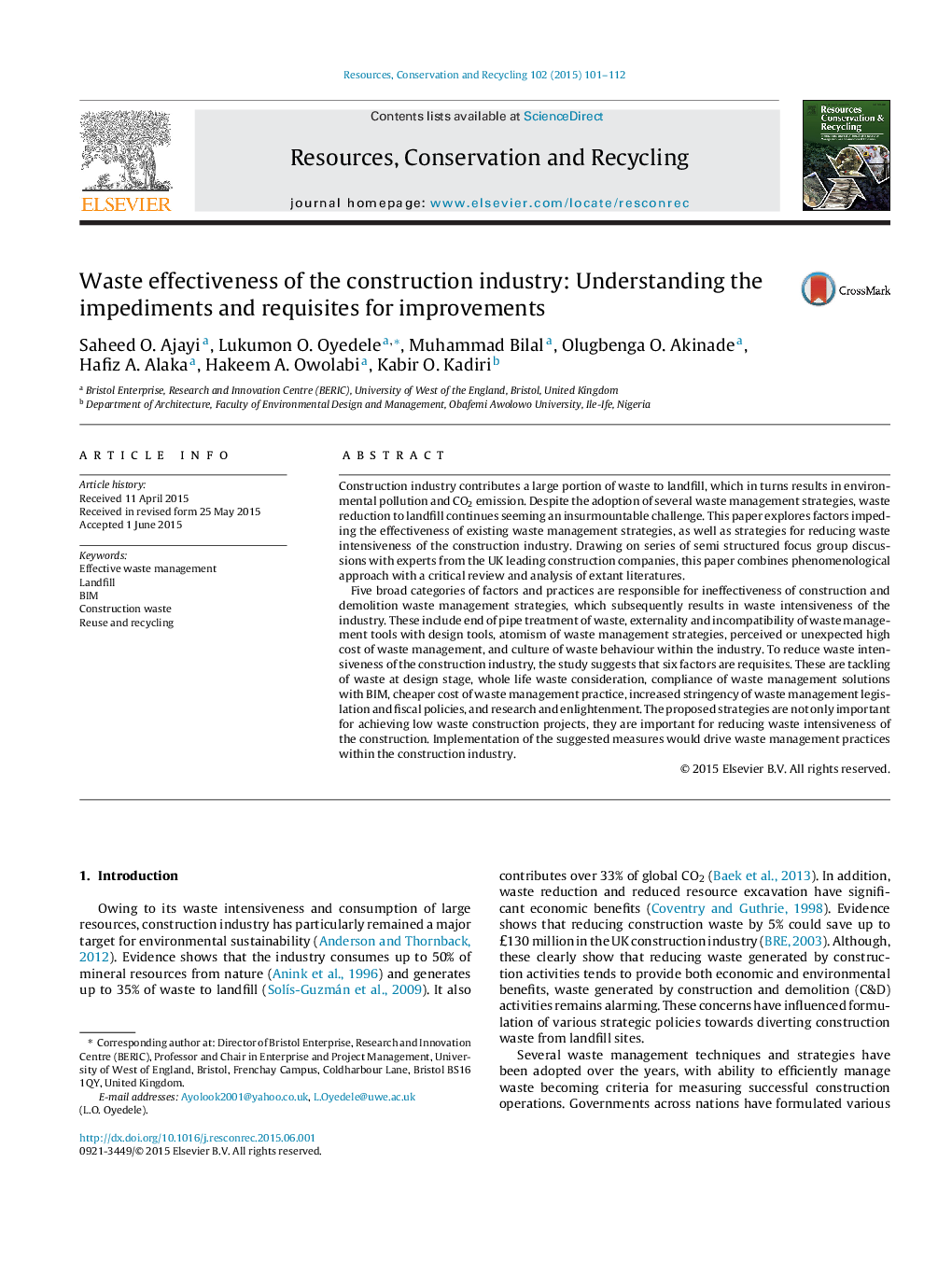| Article ID | Journal | Published Year | Pages | File Type |
|---|---|---|---|---|
| 7495106 | Resources, Conservation and Recycling | 2015 | 12 Pages |
Abstract
Five broad categories of factors and practices are responsible for ineffectiveness of construction and demolition waste management strategies, which subsequently results in waste intensiveness of the industry. These include end of pipe treatment of waste, externality and incompatibility of waste management tools with design tools, atomism of waste management strategies, perceived or unexpected high cost of waste management, and culture of waste behaviour within the industry. To reduce waste intensiveness of the construction industry, the study suggests that six factors are requisites. These are tackling of waste at design stage, whole life waste consideration, compliance of waste management solutions with BIM, cheaper cost of waste management practice, increased stringency of waste management legislation and fiscal policies, and research and enlightenment. The proposed strategies are not only important for achieving low waste construction projects, they are important for reducing waste intensiveness of the construction. Implementation of the suggested measures would drive waste management practices within the construction industry.
Keywords
Related Topics
Physical Sciences and Engineering
Energy
Renewable Energy, Sustainability and the Environment
Authors
Saheed O. Ajayi, Lukumon O. Oyedele, Muhammad Bilal, Olugbenga O. Akinade, Hafiz A. Alaka, Hakeem A. Owolabi, Kabir O. Kadiri,
